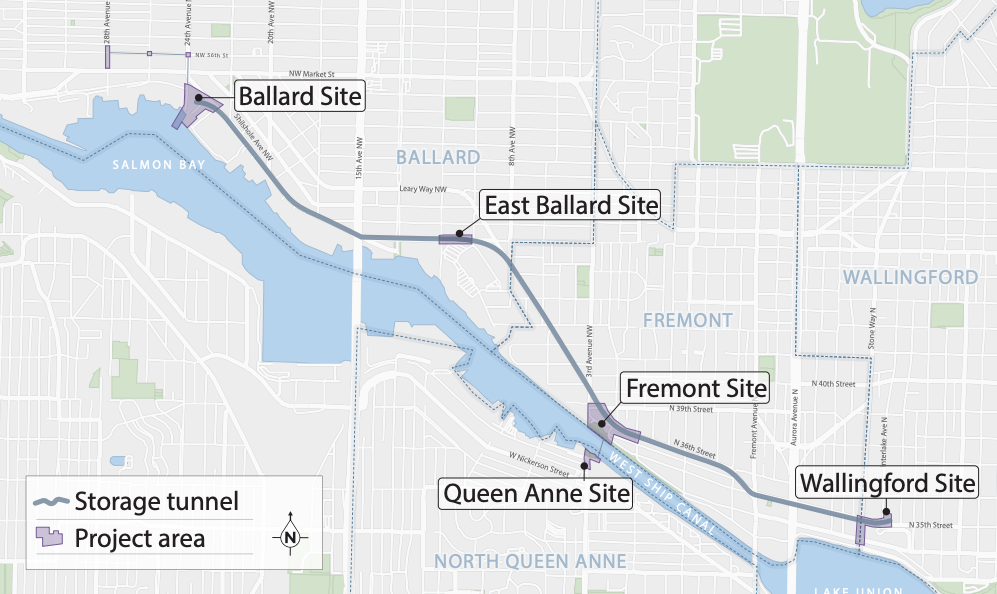Editor's note: a version of this article originally appeared on City Observatory and is republished with permission.
Seattle’s putting the finishing touches on a new 2.7 mile subway connecting some of its hippest neighborhoods between Wallingford and Ballard. Built at a cost of about $700 million, this shiny new 18 foot, 10 inch diameter tunnel is big enough for a standard single track urban train.
But this isn’t unexpected progress on the region’s long delayed “Sound Transit 3” plan. Alas, this tunnel will only carry waste-water.
The reason for this tunnel — as in many cities in the US — is to deal with periodic sewer overflows when it rains. Seattle has a system of combined storm and sanitary sewers, so stormwater mixes with domestic wastewater, which is a problem during heavy rains. The system is sized to avoid overflows when it's just handling domestic sewage, but the water flows during the rainy season exceed the capacity of the system.
Half or more of the “stormwater” is runoff from roads and parking lots, and much of the toxicity of stormwater is from cars and trucks (oil, tire debris, brake dust and precipitated air pollution). These impervious surfaces cause surges in stormwater flows into the sewage system.
While transportation is responsible for half of the stormwater problem, it pays nothing toward the cost of cleaning up this problem. Instead, all of the costs of the stormwater system are loaded onto sewer, water and drainage utility bills. And the massive size of the project is pushing up these utility bills, which are projected to rise between 4-6 percent per year between now and 2030.
The average single family home in Seattle pays $196 per month for sewer, water and drainage, the average apartment pays about $117 monthly for these utilities.

Don’t get us wrong: water pollution is a serious problem — and it needs to be dealt with. But we’re going about it in a way that is both inefficient, because we’re not sending any incentives to people to drive less, and inequitable, because we’re not asking the people causing much or most of the pollution to pay for the solution.
And cars are a major source of this problem. It has recently been discovered that a chemical used in tire manufacturing, that then gets washed off roads and into stormwater is a major factor in decimating salmon populations in Puget Sound.
There’s a decided city-subsidizing-suburbs aspect to this as well. If you live in Seattle, you pay for the project through your water and sewer bills, which are folded into rent if you’re in an apartment. And you pay whether you own a car or not — one in six Seattle households don’t. But if you live outside Seattle, and drive into or through the city for work or shopping, you pay nothing toward dealing with the stormwater.
Not asking road users to pay for the cost of the subway built to handle their toxic runoff, and instead loading it on to the bills of households or businesses, makes driving artificially cheap, and city-living artificially expensive. It’s one more way we create car-dependence and sprawl.






